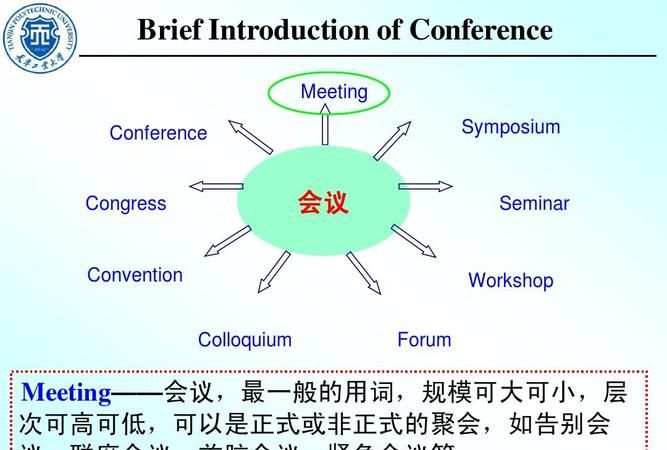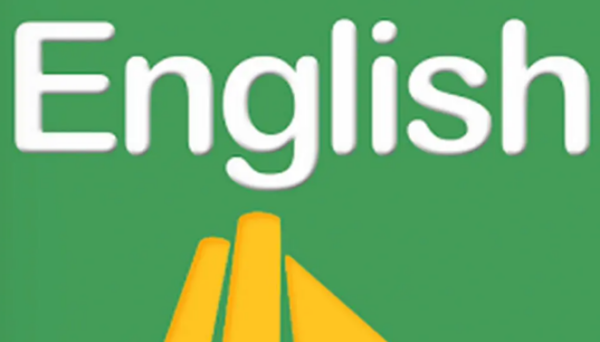本文目录
电话会议常见的英语口语表达方式
所谓的电话会议,通俗地说就是利用电话机作为工具,利用电话线作为载体来开会的新型会议模式。下面就来说说电话会议常见的英语口语表达,大家千万别错过。
电话会议常见的英语口语表达
1.good morning/afternoon/evening
要问候别人,你可以说,"Hi! How are you?"但在商务场合,问候别人更合适的方式是,"Good morning/Good afternoon/Good evening."同时包括他们的姓名:"Good morning, Ms. Smith."
2.how may I help you
无论你是在哪个领域,你工作的很大一部分内容会涉及到请求或提供帮助。无论他们是你的客户还是老板,要微笑着回答,"How may I help you?" 或是"What can I do for you?"千万小心不要只是回答一句, "What do you want?"这句话听起来相待的粗鲁,特别是用错了音调的话更可怕(句子末尾的降调会使之听上去非常的不礼貌)。
3.I'm sorry/I will
当事情发生问题时,任何人都不希望听到的是借口。因此首先要道歉,然后采取行动。如果你回答不出问题或是不能完成某人的请求时,就用"I'm sorry ? 开始。这是避免冲突的最好的方式。例如,说"I'm sorry, I don't know the answer."但是不要就此停止!接着说出你将要做的内容。"But I will find out." "I'm sorry"表示出你对他们的关心,用"I will"表示你会帮助他们以安慰他们的情绪。
4.would you mind?/Could you?/I'd appreciate
除非你是老板,你不要让别人觉得你是在发号施令。用疑问句比用陈述句更能表达你的请求。"Would you mind looking at this report?"或是"Could you take a look at this?"比以下的句子更恰当,"Look at this report."当你礼貌的提出请求时,同事会更乐意答应你!
5.in my opinion/I'm afraid I don't agree
在工作中,要讨论新的想法或是项目时,你需要用礼貌的方式来解释你的想法或是表示你不同意。将短语"In my opinion ?用在句首来告诉听者你希望获得各种各样的不同意见。如果你不赞同某人,不要说, "That's the dumbest idea I've ever heard!" 而说,"I'm afraid I don't agree."小心选择你的用词还让和你共同协作的人更愿意听你的意见!
电话会议常用的英语口语
1. 寒暄语如何说
商务中的开场白不需要太多花边功夫,只需要简要介绍自己就好。
Are we all on? 大家都在吗?
Can I ask that we all state our names, please? 我们大家先说下各自名字吧。
I’m here. It’s [your name] in [your city]. 我在哦。我是来自(某某城市)的(某某)。
Can everybody hear me? 大家都能听到我的声音吗?
2. 如何请求别人解释
有时候,由于信号不好,电话会议上你可以听不清别人在说什么。所以,你可以错过一些内容。那么此时,如何请别人阐释清楚?
Could you speak more slowly, please? 劳驾,您能说慢点儿吗?
Could you repeat that, please? 劳驾,能重复一遍吗?
Would you mind spelling that for me, please? 不好意思,您能拼写下吗?
Could you explain that in another way, please? 您能用其他方式再解释下吗?
I’m afraid I didn’t get that.不好意思,我没听清楚你的话。
3. 如何在电话会议中请求休息下
电话会议有时候给人压力非常大。所以需要适当让自己放松下。但要记住你要礼貌地告诉别人。
[Your name] speaking. I need to leave for ten minutes. Is that okay with everyone?我是XX,我现在可能要走开10分钟左右。大家OK吗?
你回来的时候,也需要告诉大家,你可以用下面句子和大家重新打招呼。
[Your name] here. I’m back on the line again. 我是XX,我又回来了。
[Your name] just coming back in here, thanks everyone. 我回来了,谢谢大家。
4. 如何谈论自己观点
到了某个阶段的时候,别人可能也会要要求你表达自己观点。那么要如何组织语言,让大家感兴趣听你说的话呢?
秘诀就是:用轻松的方式介绍自己,不要一板一眼,学会自然放松,参会人会比较舒服。
Today I’m here to talk to you about…今天主要谈谈……
I’m delighted to be here today to tell you about…今天很高兴告诉大家
Today I would like to outline our plans for…今天我们就要框定计划
Firstly I’ll talk about…/ I’ll start with some general information on…首先来说说……
Hi everyone, I’m [your name]. I’m going to keep this brief, as I know you’re all busy people. I’m going to make this quick for you…
大家好,我是XX,我知道大家都是大忙人,下面就长话短说,不用占用大家太长时间。
Then I will look at…/ then we’ll go over… 然后,我们再看看……
And finally we’ll look at…/ To conclude we’ll touch on…最后,来谈谈……
I will be glad to answer any questions that you may have. 如果你们有什么问题,请尽快提问。
5. 观点表达结束,如何收场
Well, that brings me to the end of my idea, thanks so much for listening. 这就是我想说的,谢谢大家。
It was a real pleasure being here today. Goodbye and thank you.今天真得非常愉快,那么再见了,谢谢大家。
Well that’s it from me. Thanks a lot. 以上就是我想讲的,多谢各位。
6. 如何在电话会议中成为积极参与者
在电话会议中,如果你积极融入其中,肯定要发表自己的想法,或对别人想法加以补充,或反驳。
A: 如何有礼貌打断别人说话?
Sorry, I interrupted you. You were saying…? 对不起,打扰你一下。你是说……
Please go on… 请继续
After you…你先说
I’m sorry, but could you speak up a little? 对不起,你能说得再详细点吗?
I didn’t quite hear that, sorry, can you say that again? 我没怎么听清楚,你能再说一遍吗?
I didn’t catch that last bit. Can you say it again please? 最后一点我没听清。能再说一遍吗?
B: 你有一些问题,如何表达?
Am I to understand that… 我能……这样理解吗?
Sorry, but just to clarify…对不起,我只是想澄清下……
So, what we’re saying is…所以,我们现在的意思是……
C: 赞同别人想法,怎么说?
That’s an excellent point [person’s name], I totally agree with you on that.
XX,你的观点很棒,我完全同意。
Okay, I think we are all on the same page here…好了,我想大家的想法都统一了。
Yes, I get what you’re saying…是的,我明白你的意思
D: 不赞同别人,如何反驳?
I’m sorry but I think you may have that slightly wrong…不好意思,但我觉得你讲的有点问题。
From our perspective, it’s a little different. Let me explain. 从我们这边来看,情况可能不一样,下面我们来解释下。
Well, yes and no—can I tell you how we see it? 嗯,我们既赞成,也不赞成,我能具体讲讲我们的想法吗?
7. 如何有理有据地谈判
开电话会议,有时候还会遇到谈判。双方可能就某个问题僵持不下,在某些利益问题上可能有纷争。
每个人都既想赢,又不想被别人占便宜。但谈判桌上,生意人最不可以失态。
Professional businesspeople never lose control of their emotions.
那么此时,最重要的就是守住自己的底牌(deal breaker),有所坚持、但有所妥协。
下面这些说法是非常好的表达!
I understand that we can’t do that, but can we discuss some other alternatives? 我理解我们做不到这点,那我们还有其他备选方案吗?
I hear what you’re saying, but our bottom line is very clear on this one.我知道你的意思,但是我们对此的底线是非常清晰的。
This is the deal breaker for us, we can’t budge. 这是我们的底线,这是没法讨价还价的。
8. 如何约定后续电话会议
很多事情不是一次电话会议就能搞定的。那么如何和对方约定下一次通话机会呢?
I’d like to set up a meeting with you at your earliest convenience. When are you free?
我们想尽早再与您通个电话。不知你什么时候方便?
Are you free to talk again next week? 下个星期可以再通一次电话吗?
How does 2:30 p.m. Thursday sound? 周四下午2:30怎么样?
Does Thursday at 2:30 p.m. suit you? 周四下午2:30,你们OK吗?
电话会议的英语口语对话
对话一:
A: This is Frank Fin from France.
我是弗兰克芬,我在法国。
B: This is Dick Brown from the USA.
我是迪克布朗,我在美国。
A: Mr. Fin, how do you think about our offer?
芬先生,您对我们的报盘有何看法?
B: Mr. Brown, the price you offered is a little higher.
布朗先生,你们的报价有点高。
对话二:
A: Mr. Fin, just think about our quality.
芬先生,考虑一下我们的质量吧。
B: Yes, but can you grant us a discount?
是的,但是贵公司可否给我们打个折扣?
A: We have to have a conference talking about it.
我们要开会研究一下。
B: OK. Thank you for your consideration.
好的。谢谢您考虑我们的建议。

常用上课英语口语句型
会议是一种普遍的社会现象,几乎有组织的地方都会有会议,会议的主要功能包括决策、控制、协调和教育等功能。今天给大家分享了常用的会议英语口语句型,赶紧来看看吧!
常用的会议英语口语句型
Since everyone’s here, shall we get started?
大家到齐了,我们开始吧。
I’d like to call the meeting to order.
我宣布会议开始。
Today, we are going to discuss…..
今天我们要讨论…
Shall we move on to the next item on the agenda?
我们接着进行议程的下一项。
Let’s turn to the second issue.
我们接着讨论第二个问题。
I’m afraid you are getting side track.
恐怕你有点离题了。
Shall we get back to the main point?
我们言归正传吧。
I’m sorry to cut you off.
对不起打断一下。
May I come in here?
我可以插句话吗?
Have you got anything to say?
你有什么要说吗?
Are you with me on this?
你们明白我这句话的意思吗?
What do you mean by saying that?
你这么说什么意思?
Could we have your comment?
请你谈谈好吗?
Could we have your report now?
请你现在汇报好吗?
Whose turn is it to take the floor?
轮到谁发言了?
Mr chairman, may I have the floor?
主席先生,我可以发言吗?
Could you elaborate on that?
你能详细谈谈那一点吗?
I’d like to make a point.
我想说一点。
Are you for or against this proposal?
你是赞成还是反对这项提议?
Has anyone got any objection to this regulation?
有谁对这项规定持异议吗?
Those against raise your hands.
反对的请举手。
Is there any other business?
还有别的事吗?
Are we all agreed?
大家都同意吗?
邀请别人参加会议的英语口语表达
1.E-mail邀请的写作注意事项
在主题行写清会议名称、地点和时间,例如:
Subject:Sales Meeting Beijing 11 July 2007;
在称呼后直接点明召开会议的原由,例如:
We need to finalize the next product launch.
提出会议召开时间的建议,例如:
We should have a meeting before the Shanghai fair in July. How about June 21?
给对方一个选择时间的机会,例如:
If the date mentioned isn’t possible for you, please Suggest an alternative in that week.
2.电话邀请的注意事项
在打电话之前要充分准备,不仅要交代清楚会议的时间、地点和目的,还要考虑好礼节性问候和一些寒暄,最好用英语写下笔记。
询问对方是否有意开会,例如:
Could we schedule a time to meet next week?
建议会议时间,例如:
How about sometime after lunch?
确认开会日期和时间,例如:
See you on Monday at 7:00.
常见的会议英语口语
一、宣布会议开始
1. Let's call the meeting to order.
2. Let's get things under way.
3. Let's get things started.
4. Shall we begin?
Order 在此是指"会议的程序与规则";call 有"宣布"的含意,call (a meeting) to order 是开会时的惯用语,是"会议开始"的意思。此句型适用于主席宣布讨论要开始时,示意与会者安静,遵守会场的秩序。这里"call"亦可以"bring"代替。这个句型适用于正式的场合中。
如果与会者中有公司以外的人,可以这样说:
Well, ladies and gentlemen, I think we should begin.
也可以采用半正式的说法:
Perhaps we'd better get started / down to business.
All right, I think it's about time we get started / going.
Right then, I think we should begin.
较口语的说法有:
Let's begin /get going, shall we?
Shall we start?
二、揭示讨论要点
1. Let me bring your attention to (what I see as) the main issues.
2. Let's focus on the main issues.
3. Let me tell you what I believe to be the main issues.
4. Allow me to set out the main issues for you.
bring one's attention to... 的意思是"让某人注意(听、看)……"。此句中的bring 可用 call代替;main 为"主要的";issue是"争论点;关键;议论"。这句话是表示自己要宣布几个重要事项,请与会者注意所要说明及提示的要点;这是正式的表达用语,语气中带有感。
三、请专人发言
1. To address this issue, I'd like to call on...
2. To discuss this matter, I'd like to call on...
3. To shed some light on this, I'd like to call on...
4. To provide us with more detail, I'd like to call on...
Address 为"提及;陈述";call on someone 这个词组的意思是"要求某人(做某事)",on之后的宾语为被要求的人。此句型是在正式的场合中用以介绍下一位发言人。由于句首使用 To address this issue "谈起这个问题",显示特别强调这位发言者的意见值得采纳、尊重或听取;有时亦暗示主席或高阶人士也同样支持此人的意见。

常用商务英语口语对话
会议常用商务英语口语
在商务活动中,会经常那个接触到关于会议的口语。为了帮助大家,我整理了一些关于会议的商务英语口语,希望能对大家有所帮助!

An office meeting has been scheduled, but Paul is running late.
办公室会议要按计划开始了,但是保罗迟到了。
He's asked Anna to take charge and start the meeting without him.
他让安娜主持会议,并且在他没到场时开始。
Here you go Anna, it's a print-out of the agenda for the meeting.
给你,安娜,这是会议日程打印版。
Thank you. Oh dear, I'm not sure if I know the right words to start meetings.
谢谢。上帝,我不确定是否知道开始会议的正确用词。
Well, you can say something like: Thank you for coming.
你可以像这么说:谢谢你们的到场。
There are five items on the agenda today.
今天的工作事项中有五件事要做。
Items? It's a fancy way of saying 'things'.
Items(事情)? 这是表达“事情”的另一种高级说法。
Then you list them: Firstly, secondly, after that, and then, finally...
然后你例举出它们:首先,其次,之后,然后,最后……
Yes, that's easy.
是的,这样很简单。
At the end there is often something called: Any other business.
最后经常会说:还有其他事情吗?
Any other business?
还有其他事情吗?
That's anything else that wasn't listed on the agenda, but that people want to talk about.
这是指不在日程上,但是有人想要讨论的其他事。
I expect Tom will want to talk about how great he is and Denise will want to talk about her new hairdresser or something.
我想汤姆会说他自己有多么出色,丹尼斯会想说她的.新理发师之类的。
Then when it's time for the meeting to end, you can say: Let's wrap up. It means 'Let's finish'.
然后当会议要结束时,你可以说:Let's wrap up 意思是让我们散会吧。
To wrap up. OK, I'll do my best. Ooh, it's time, everyone is gathering.
会议结束。好,我会尽力。时间到了,大家都来了。
Thank you… thank you for coming.
谢谢,感谢到场。
Paul will be here soon, but he asked me to start the meeting.
保罗马上就到了,但他让我先开始会议。
There are...one, two, three, four items on the agenda today.
今天的工作日程上有四件事。
Firstly, the stock management systems.
首先是库存管理系统。
Secondly, plans for a team-building activity.
其次是团建活动计划。
After that, the colour of our new apples and finally any other business, before we can wrap up.
之后是新苹果的颜色问题,最后在会议结束前看看有没有其他问题。
Oh golly gosh, there you are, here I am, good. Hello everyone. Sorry I'm late.
上帝,你们都在,我来了,很好。大家好,对不起我来晚了。
I'd just opened the meeting.
会议刚开始。
Great. Remind me what the first item on the agenda is? Stock.
很好,提醒我一下第一件会议要事是什么? 库存。
Stock? Stock, stock, stock. Ah yes, stock management systems, yes, right.
库存?库存,库存,库存。是的,库存管理系统,很好。
Well, that's mainly to announce that we need to start developing a good stock management system so we can meet the huge demand I’m expecting for these laser-curved fruits.
我们主要要讲的是我们需要开发一个良性的库存管理系统,这样我们就能满足激光曲线水果的巨大供需问题。
Anna, I'd like you to lead on that.
安娜,我希望你来负责。
Me? You want me to be in charge of the stock management systems?
我?你想让我负责库存管理系统吗?
Anna's had some excellent ideas already and I think she'll do a great job.
安娜已经有一些很棒的想法了,我想她会做得很棒。
For these new fruits, stock control will be key to supplying our customers with laser-curve oranges, laser-curve lemons, laser-curve pomegramates…
对于这些新水果,库存管控是为客户供给这些激光曲线橙子、柠檬、石榴等的关键。
Well, that was good news for Anna - but not surprising after all her hard work.
这对安娜是好消息,但是经过她的刻苦努力,这并不令人感到惊讶。
She opened the meeting well, too.
她会议开启的也很好。
Here's a reminder of the phrases she used: Thank you for coming.
这里提示一下她用过的表达:谢谢到场。
There are four items on the agenda today.
今天的会议日程里有四件事。
Firstly...Secondly...After that...Then...And finally...Any other business.
首先……其次……之后……然后……最后……其他事情。
And then we can wrap up.
散会。
There's only one problem for Anna now, winning over Mr Ingle the warehouse manager – that won’t be easy.
现在安娜只有一个问题了,说服库房经理英格尔先生,这并不容易。
Well, time for me to wrap up now. See you soon! Bye!
是时间我要说再见了,待会儿见,再见。
;表示会议的英语单词有哪些
例如:conference、conversion等。

以下是英语的相关介绍:
英语已经发展了1400多年。英语的最早形式是由盎格鲁-撒克逊人移民于5世纪带到英国的一组西日耳曼语支(Ingvaeonic)方言,被统称为古英语。中古英语始于11世纪末,诺曼征服英格兰;1476年,威廉·卡克斯顿将印刷机介绍给英国,并开始在伦敦出版第一本印刷书籍,扩大了英语的影响力。
自17世纪以来,现代英语在英国和美国的广泛影响下在世界各地传播。通过各类这些国家的印刷和电子媒体,英语已成为国际主导语言之一,在许多地区和专业的环境下的语言也有主导地位,例如科学、导航和法律。
以上资料参考百度百科——英语
以上就是关于线上会议常用英语 ,电话会议常见的英语口语表达方式的全部内容,以及线上会议常用英语 的相关内容,希望能够帮到您。
